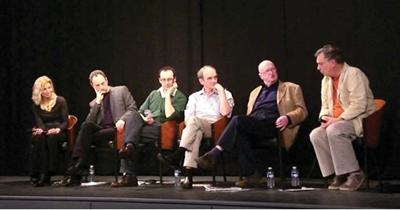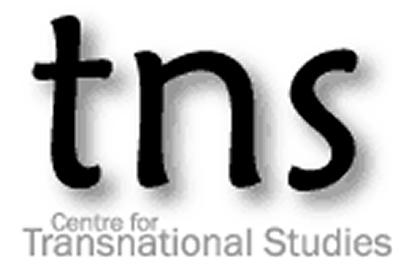Film Studies' research is very diverse and often interdisciplinary, but can be grouped under a number of specific themes, which in some cases overlap with each other. These are: investigations into the nexus between national, transnational, and global identities and specificities in cinema and television; historical approaches to cinema industries and audiences; and theoretical questions regarding audio-visual aesthetics and their relationship with audiences and practitioners. Our academics have published widely in these areas and particularly welcome related applications from potential postgraduate students.’

National, transnational and global identities in cinema and television
This theme involves studies into the nature and distinctiveness of national cinemas across the world, and how this distinctiveness is handled at a local level through film policy, and economic decisions at the level of film production, distribution, and exhibition. This theme is also concerned with the intersections between different cultures, caused by exchanges, transfers, mutual influences, and migratory processes. Understanding changing global identities in an increasingly technology orientated world encourages innovative research practices. Case studies addressed by staff and research students have included international events, public lectures, and publications on the following topics: Hollywood, East-Asian cinema, British cinema, European cinema, French cinema, German cinema, Irish cinema, Spanish and Latin-American cinema, Eastern European cinema, World cinema. This research has had an impact beyond academia, such as through public discussions on Post-Brexit identity at film festivals, several advisory roles, including the commission of reports by film agencies and charities, and the curation of events at the Swedish Film Institute.
Historical approaches to cinema industries and audiences
Several staff members are committed to historical investigations into earlier periods of cinema and television history, and there is a strong interest in silent cinema. Topics researched by colleagues include the representation of 20th century conflict in cinema (World War One and Two, the Cold War), local film cultures of film production, exhibition and consumption, studies of stardom and cinephilia, historically specific instances of reception; the relation between film and other media (such as literature, television, other art forms) at particular moments in history; the history of media technologies (including sound); cultural histories of film policy and markets; and histories of women filmmakers in the UK industry. A focus on heritage and the past has led to colleague’s involvement in projects such as the creation of new music for silent films screened at venues, such as The Royal Albert Hall, and the development of public events on the Great War.
Film theory and audiovisual aesthetics
Another strong research focus is on theoretical questions regarding the nature of film as a medium and its changing position in relation to new media, screens and forms of storage. We also specialise in the analysis of specific aesthetic aspects. The latter include investigations into film music and sound, set design, cinematography, screenwriting techniques and practices, and acting. Case studies have focused on a wide range of film genres, including horror, science fiction, melodrama, chick flicks, the musical, historical spectacles, art cinema, and documentary as well as the distinct aesthetics of television and its representation of the biomedical. Colleagues have also examined how film theory and aesthetics have impacted upon audiences with dementia, and, conversely, how women’s involvement behind the camera can impact on screen representation of women’s stories.

Key facts
Film Studies staff have research links across the University with the Departments of History, Archaeology, Music, and Medicine, as well as the Centre for Transnational Studies and the Parkes Institute for the Study of Jewish/non Jewish Relations.
The keenest connections are with the Department of English, with individual and collective alliances and more general alignments of interest in areas such as cultural histories of knowledge, heritage, and policy and practice in creative industries.
Staff also have research connections with other universities, formalized in large collaborative projects (for instance with Bristol University and Lund University) as well as smaller scale activities (such as co-editing books).